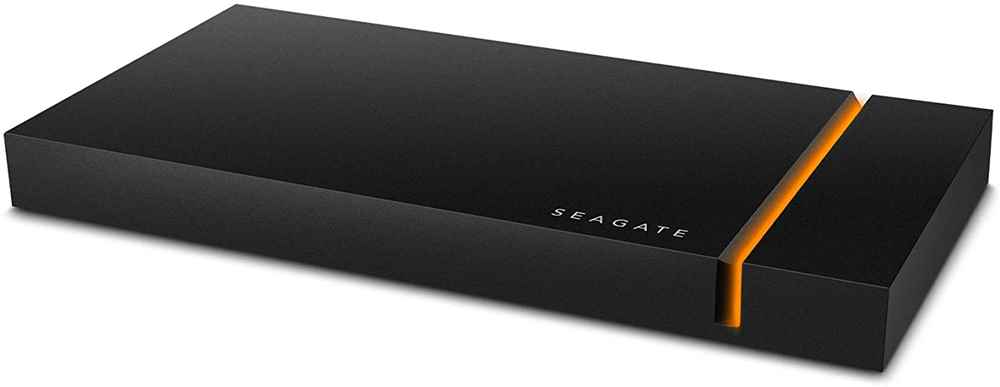New Seagate FireCuda Gaming SSD
New Seagate FireCuda Gaming SSD

The 20 Gbps transfer rates promised by USB 3.2 Gen 2x2 has an instant appeal for gamers who always want the fastest possible portable SSDs. Keeping this in mind, many vendors have introduced USB 3.2 Gen 2x2 bus-powered portable SSDs. One such device is the Seagate FireCuda Gaming SSD. It is based on the ASMedia ASM2364 bridge chip and has a premium metal construction. The FireCuda Gaming SSD’s unique selling point is the availability of RGB lighting that can be controlled using Seagate's Toolkit. The SDD is available in three capacities – in addition to the 1TB version, Seagate also offers a 500GB model of the FireCuda Gaming SSD and a 2TB one.
The FireCuda Gaming SSD is rather compact (104.4 mm x 52.5 mm x 10 mm) and it is supplied with only one USB 3.2 Gen 2x2 Type-C cable. The SSD drive supports the latest and fastest USB 3.2 Gen 2x2 (aka “SuperSpeed USB 20Gbps”) transfer speeds when connected to a compatible USB-C port on your PC. Without said port, the Seagate FireCuda Gaming SSD is no faster than the existing and substantially cheaper 10Gbps (Gen 2) competition.
Inside, the FireCuda Gaming SSD uses cutting-edge storage technology. This includes PCI Express NVMe bus architecture combined with the USB interface over an ASMedia controller. That translates to rated data read speeds of up to 2,000MBps when connected via USB 3.2 Gen 2x2. Unfortunately, very few PCs have such a port. Most USB Type-C ports you’ll find on desktops and laptops use the USB 3.2 Gen 1 or Gen 2 (not “2x2”) interface instead. Over these interfaces, the Gaming SSD can top out, respectively, at 5Gbps (625MBps) or 10Gbps (1,250MBps) read/write speeds. So you’ll need to check what specific ports your PC has. USB 3.2 2x2 is not common except on some high-end, late-model motherboards and a few premium laptops.
With a cutting-edge version of the USB interface, the Seagate FireCuda Gaming SSDs are a good option for storing massive game files once your PC’s internal storage fills up. But unfortunately, they’re also vulnerable to logical and physical SSD failures, making user data inaccessible. In such cases, the owners of the Seagate FireCuda Gaming SSDs will need to contact a reliable data recovery services provider to get their valuable files back. ACE Data Recovery engineers can successfully recover data from different types of storage media and are ready to help the the Seagate FireCuda Gaming SSD owners with their data recovery needs.
